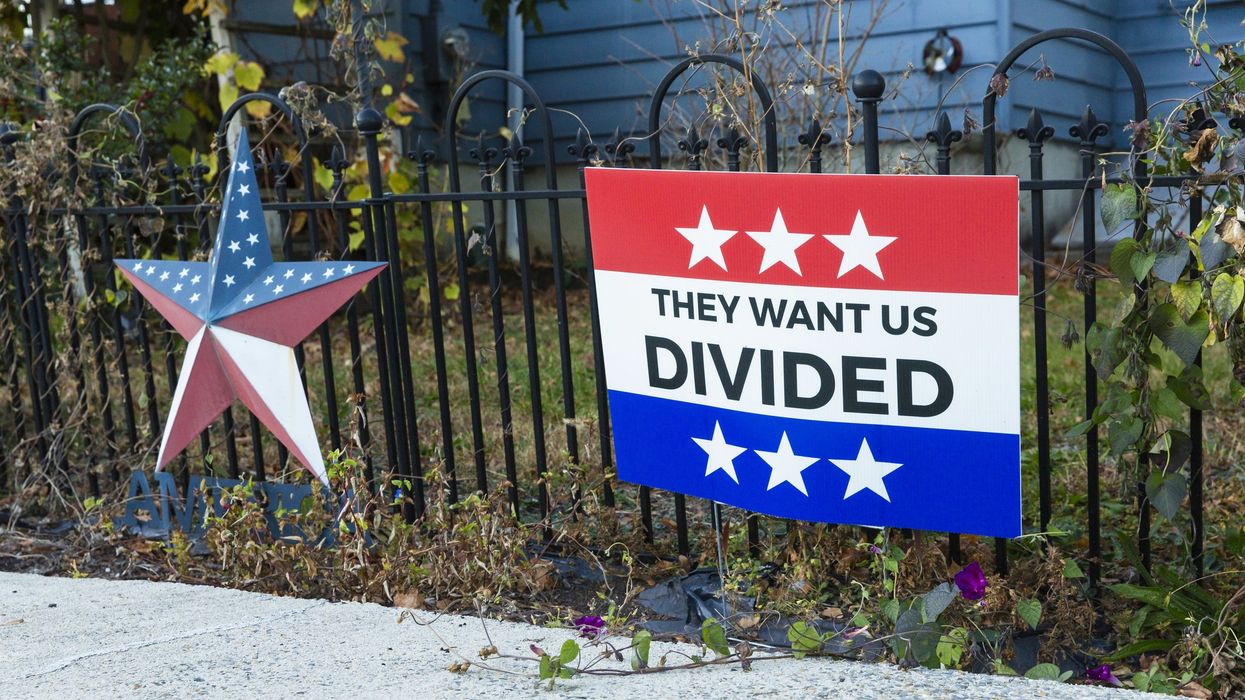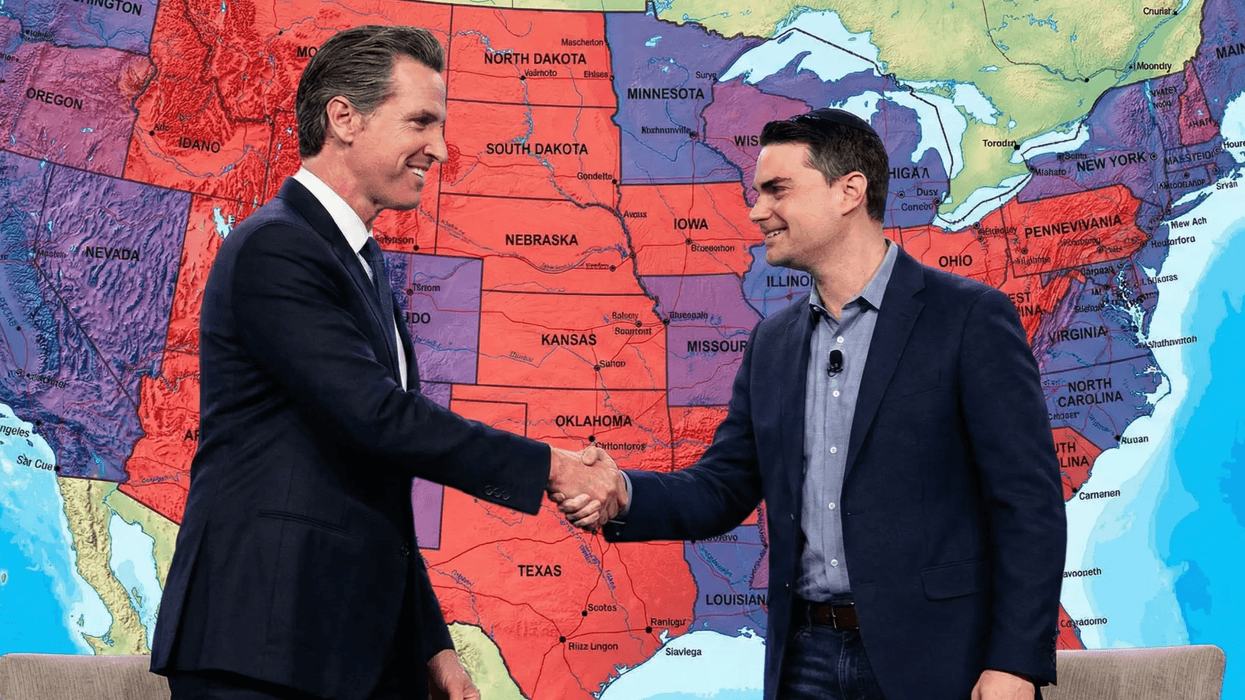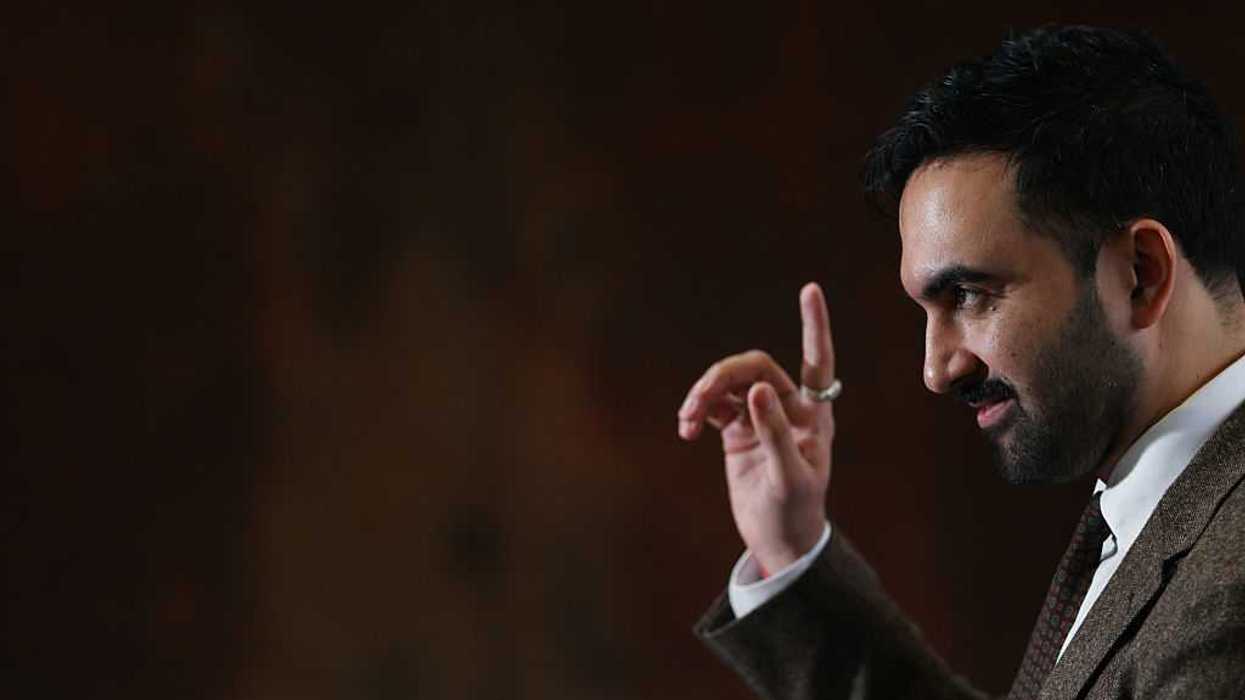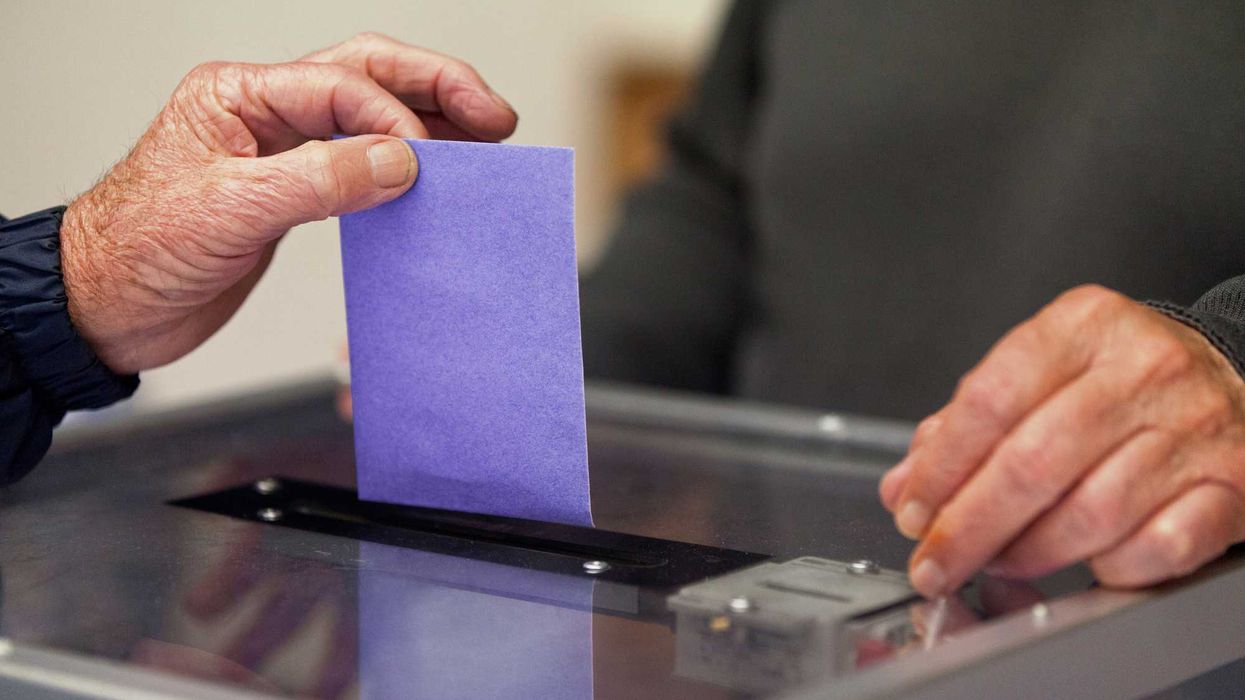Like many Americans, I have been increasingly disappointed by the candidates promoted by political parties because they tend to back candidates who are ultimately focused on personal gain and/or only advancing issues predetermined by party priorities while moving further away from responding to the needs of their constituents. According to The Guardian, in the 2024 election, the number of eligible voters who did not cast their ballot is more than the total of those who voted for either of the party candidates. So, maybe the real issue is that our political party system just isn’t working for most Americans anymore. Assuming this is even partially true, what if, instead of just complaining about the parties or holding our noses and voting for the "lesser evil" every November, we actually fired the parties—took away their grip on our democracy and built something better.
For decades, we've been told we only have two choices. But more and more Americans don't feel truly represented by either major party. We're exhausted by the noise, the blame games, the endless culture wars that solve nothing and only serve to increasingly marginalize portions of our citizenry. Americans want real solutions on housing, healthcare, education, wages, and the future we're leaving for the next generation. And we're not getting them. So, maybe it's time to ask a radical but necessary question: What if the problem isn't just the candidates but the political party system that keeps producing them?
The Case for Firing the Parties
A. They Were Never Supposed to Be Permanent
Political parties aren't mentioned anywhere in the U.S. Constitution. The Founders didn't design a system based on organized political factions. In fact, they explicitly warned against it. George Washington, in his 1796 farewell address, foretold that political parties would eventually "become potent engines" for individuals to seize and abuse power, dividing citizens and distracting the government from serving the public good. In a letter written by John Adams in 1780, he regarded the division of the republic into two great parties as "to be dreaded as the greatest political evil." In a 1789 letter from Thomas Jefferson, he wrote: “If I could not go to heaven but with a party, I would not go there at all.”
Yet political parties arose almost immediately after the Constitution was ratified. These early versions of political parties formed largely out of necessity to organize debates and mobilize voters. Political parties were tools for winning elections. But over time, the tool began to control the system itself. Today, parties aren't just optional organizers of ideas, they have become gatekeepers of power, often more loyal to themselves than to the people they claim to serve.
B. They're Driving Us Apart
At their best, political parties organize ideas and make democracy more accessible. At their worst, and today, it often feels like the worst, they divide us into warring camps. What used to be policy disagreements have hardened into full-blown cultural and moral divides. According to Pew Research Center and Gallup surveys from the past decade, Americans are more polarized than at any point in modern history, and personal animosity between the two major parties' supporters has exploded.
Several forces have supercharged this divide:
- Partisan media ecosystems: Cable news, talk radio, and algorithm-driven social media relentlessly reinforce extreme narratives and punish nuance.
- Confirmation bias: In an environment flooded with information, people naturally seek out sources that affirm their existing beliefs—and attack anything that challenges them. Parties exploit this instinct, feeding voters curated "facts" that deepen mistrust.
- Gerrymandering: Safe districts create politicians who are more afraid of a primary challenge from within their own party rather than losing to the other side.
- Localization of national issues: Local governance increasingly reflects national political wars, making every issue seem existential.
Today’s parties thrive on conflict because conflict drives turnout, fundraising, and loyalty. But this conflict comes at a devastating cost. Instead of debating solutions, we debate whether the other side deserves a voice at all.
C. They Don't Deliver Results
Political parties often tout their accomplishments, but a closer examination reveals a pattern of overpromising and underdelivering.
The Biden Administration/Democratic party “accomplishments”:
- According to the U.S. Bureau of Labor Statistics, the American Rescue Plan created millions of jobs and stimulated recovery but rising inflation throughout 2022 and 2023 eroded many of those wage gains.
- The Infrastructure Investment and Jobs Act promised historic investment but implementation has been slow and uneven.
- Student loan forgiveness plans offered hope but were largely blocked, leaving millions in limbo. Student loan debt has surpassed $1.7 trillion in the U.S., according to the Federal Reserve.
The Trump Administration/Republican party “accomplishments”:
- The Tax Cuts and Jobs Act during Trump’s first administration spurred short-term growth but added significantly to the national debt.
- Healthcare promises to repeal and replace the Affordable Care Act fell flat, leaving the system largely unchanged.
- More recently, trade policies aimed to protect U.S. industries have triggered costly trade wars and market instability.
Both administrations can arguably tout tangible wins, but systemic challenges like healthcare access, education affordability, housing, and political corruption remain deeply entrenched. The problem isn't just with the individuals in charge. It's the party-driven system that prioritizes wins over results, elections over solutions.
What Would a Post-Party America Look Like?
Firing the parties doesn't mean firing democracy. It means reviving it, and moving beyond political parties could likely increase participation in our country’s democracy, particularly among those disenchanted with the current political party approach who no longer blindly agree with positions or issues championed by either party; as well as those who actively choose not to vote because they find the system too corrupt and unaccountable.
A. Independent Candidates and Open Elections
Without parties controlling the ballot, candidates would stand on their own platforms. Open primaries and nonpartisan general elections would allow for a wider, more diverse field of candidates.
B. Collaboration Over Tribalism
In a system without rigid party lines, coalitions would form around issues, not ideology. Leaders could work together on education, climate, healthcare, infrastructure, and more without fearing party retribution.
C. Power Back to the People, Not Just the Wealthy Few
Private sector business interests have too often hijacked party agendas. In a post-party system, publicly funded elections, stricter lobbying regulations, and greater transparency would put the government back where it belongs: working for citizens, not corporate sponsors.
Common Ground to Build On
The hunger for change is already here. Across the spectrum, Americans agree on term limits, fair elections, ending gerrymandering, and reducing the influence of big money.
Firing the parties isn't about abandoning values. It's about reclaiming them and reclaiming democracy itself. Electing more non-partisan candidates won't fix everything overnight and it won’t be easy. But even small efforts can make a significant impact. A recent Washington Post article highlighted the work of The Independent Center, an organization focused on electing a small number of centrist/independent candidates into Congress. If successful, the organization projects that this would completely remove the opportunity to legislate by a majority from either party, mandating collaboration across party lines, and focusing on issues of importance to their constituents.
Implementation of ongoing reforms like ranked-choice voting, independent redistricting commissions, and nonpartisan primaries show that better systems are possible in the U.S. Above all, we must remember: democracy isn't a finished product, it's a process. It's something we must consistently and conscientiously work on, generation after generation. By examining whether we actually need political parties in America, we will also be committing to improving our democracy. It won't be fast. But it's worth it. Because this country does not belong to the political parties. It belongs to us.
Ms. Alexious Butler is a seasoned global development and foreign policy expert with more than two decades of experience designing and leading complex international programs across Africa, Asia, and the Caribbean. Her work has spanned crisis response, democratic governance, and institutional reform, with a focus on driving impact in fragile and resource-constrained environments. She has advised national governments, multilateral institutions, and grassroots coalitions, and is recognized for her ability to align diverse stakeholders toward shared goals. Alexious holds degrees from Duke University, Georgia Tech, and the U.S. Army War College, and was recently honored as a national security and foreign policy leader to watch.




















Trump & Hegseth gave Mark Kelly a huge 2028 gift